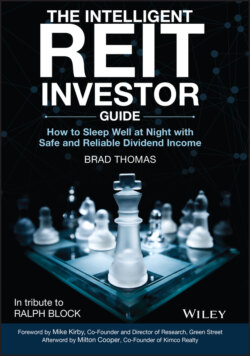Читать книгу The Intelligent REIT Investor Guide - Brad Thomas - Страница 32
UPREITs and DownREITs
ОглавлениеIn studying different REITs, you might come across the term “umbrella partnership real estate investment trust,” or UPREIT. It's a corporate structure that allows management to offer operating property units (OPUs) in exchange for purchases instead of cold, hard cash. This gives the seller the opportunity to still benefit from the property without the associated hassle, and the REIT the opportunity to better maintain its expenses.
The UPREIT concept, which was first implemented in 1992 by creative investment bankers, means that the REIT itself might not own any properties directly. What it does own is a controlling interest in a limited partnership that, in turn, owns the real estate. Its fellow partners could easily include management and private investors who had indirectly owned the properties in question before they became part of a REIT portfolio.
Owners of the limited partnership units have the right to convert them into shares, to vote as if they already own shares, and to receive the same dividends too. In short, they enjoy virtually the same attributes of ownership as public shareholders.
DownREITs, meanwhile, are actually structured similarly but are usually formed after the REIT becomes a public company. And members of management aren't usually going to be limited partners in the controlled partnership.
Both corporate structures can exchange OPUs for interests in other real estate partnerships that own properties the REIT wants to acquire. That enables sellers to defer capital gains taxes and have a more diversified form of investment. And that, in turn, can give UPREITs and DownREITs a competitive edge over a regular REIT when it comes to making deals with tax‐sensitive sellers.
One negative aspect about them, though, is how they open the door to potential conflicts of interest. After all, management can own units in the partnership, which usually have a low‐cost basis. The sale of a property could therefore trigger taxable income to them – but not to the actual REIT's shareholders. This can make management reluctant to sell a property – or even the REIT itself – despite its not performing well or receiving a generous offer.
